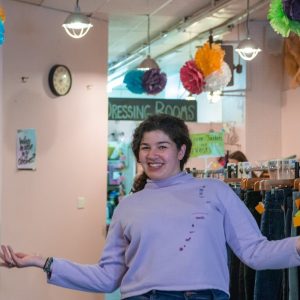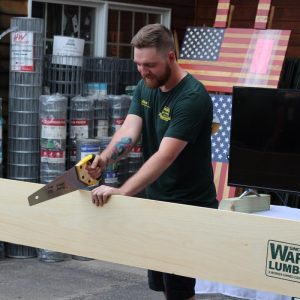by Dana Bamford, ANCA Summer Fellow
Having grown up in suburban Boston, it was a real change moving to northern New York.
Not because of the swarming Yankees and Mets fans and not even because of the dreaded winters — those I’ve had my fair share of in Boston. The biggest change for me was the shift to a more rural lifestyle.
Before moving up to the Adirondacks and working with ANCA this summer, I attended Colgate University, which is located in a pretty isolated location. At Colgate, I got used to driving an hour to the closest Target, or thirty minutes to the best ice cream spot. Thirty minutes to the nearest gas station, however, came as quite the shock despite my rural-life grace period at school.

With everything so spread out, I found myself wondering if I would be able to live here long term. It’s a beautiful area with so much to offer, but how would I make friends? I haven’t spotted many other young residents in the area.
Attracting people to the area, from my perspective, does not seem to be the heart of the issue. The beauty and appeal of the region are already apparent. When I walk around Saranac Lake, especially on summer weekends, I pass loads of younger tourists. Key word: tourists. Attracting — and then retaining — a younger population in the Adirondacks is the bigger issue.
Why is the lack of young people in the North Country an issue?
I’m not suggesting that the essence of life in the Adirondacks needs to change in order to accommodate younger folks. This slower paced, more serene lifestyle is well-appreciated and fundamental. It’s not for everyone, but a lifestyle that I could absolutely get used to and a lifestyle that I know other young people would enjoy. Nonetheless, the scarcity of young residents remains an issue.
The reality of aging businesses had never truly hit me until I was walking around Lake Placid one day, jumping from store to store. Having just edited the business website listings for ANCA’s Center for Businesses in Transition (CBIT), I was struck by how many storefronts I recognized from the site. I was amazed by how many businesses in the area are currently searching for a new owner.

Without a strong new generation of entrepreneurs, these businesses are at risk, along with the community as a whole. In order to sustain North Country communities in the years to come, there is a strong need for younger residents to carry on the legacies of aging businesses and promote economic prosperity.
Seeing young entrepreneurs like Victoria Vasquez (left) at Main Street Exchange in Saranac Lake or the many worker-owners at Ward Lumber (like Alex Pond, pictured) in Malone and Jay is inspiring and encouraging. Their progress and bravery are proof that younger people can indeed handle the tasks of small business management.
While the steps to get to business ownership may have been daunting, young owners working with ANCA’s CBIT project have paved the way for more to come. Not only have CBIT partners helped transition retiring businesses over to new successors, they have also helped create more sustainable job options for young people in the area, allowing them to reside more permanently in the North Country.
While there is definitely more work to be done on the retention of a younger population, economic development programs like CBIT are providing innovative opportunities for jobs that go beyond minimum-wage tourism positions.
For young people who are willing to take the leap, business ownership can be a rewarding career and lifestyle choice — and one that will benefit North Country communities for years to come.
 Dana Bamford joined the ANCA team in June as a 2021 Summer Fellow. A recent graduate from Colgate University, Dana holds a bachelor’s degree in Peace and Conflict Studies and a Sociology minor. She has been helping to develop a survey to assess successes and challenges of the Center for Businesses in Transition program and supporting CBIT’s social media efforts.
Dana Bamford joined the ANCA team in June as a 2021 Summer Fellow. A recent graduate from Colgate University, Dana holds a bachelor’s degree in Peace and Conflict Studies and a Sociology minor. She has been helping to develop a survey to assess successes and challenges of the Center for Businesses in Transition program and supporting CBIT’s social media efforts.
Photos: 1) Dana and a friend enjoying an outdoor adventure in the Adirondack Mountains. 2) Victoria Vasquez is the new owner of Main Street Exchange in Saranac Lake. 3) Alex Pond cuts a board at a “board cutting ceremony” in June 2021 to commemorate the company’s transition to a worker-owned cooperative.
